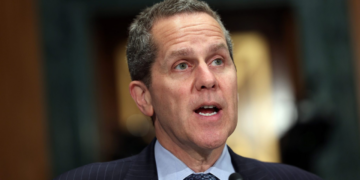What’s going on:
Business management and consulting firm Deloitte recently released its 2023 Gen Z and Millennial Survey, which reveals that these generations are increasingly concerned about environmental sustainability, social impact, work-life balance, and economic uncertainty.
Deloitte surveyed more than 22,000 Gen Z and millennial workers across 44 countries to examine their relationship with work. The data reveals the two generations are making lifestyle and career decisions based on these concerns, with many taking actions to reduce their environmental footprint and seeking employers that align with their own values.
According to Deloitte, “Nearly four in 10 (44% of Gen Zers and 37% of millennials) say they have rejected assignments due to ethical concerns, while 39% and 34%, respectively, have turned down employers that do not align with their values.”
Why it matters:
As Gen Zers and millennials continue to take over the workforce, understanding their preferences and motivations is crucial for organizations to effectively recruit and engage these workers. The report highlights the evolving expectations, values, and technology-driven preferences of Gen Z and millennials when it comes to their career choices.
The data also highlights the persistent stress and burnout experienced by Gen Zers and millennials, with factors such as poor work-life balance, heavy workloads, and caregiving responsibilities impacting their mental health.
How it’ll impact the future:
The competition for top talent is intensifying. Companies that can align their recruitment strategies with the expectations and aspirations of Gen Zers and millennials will have a competitive advantage in attracting and retaining the best candidates. This includes leveraging digital platforms, showcasing purpose-driven initiatives, and providing opportunities for growth and development.
The report highlights the significance of diversity, inclusion, and social responsibility for Gen Z and millennial candidates. Organizations that prioritize creating inclusive environments, championing diversity, and addressing societal issues will be more successful in attracting and retaining top talent from these generations.















